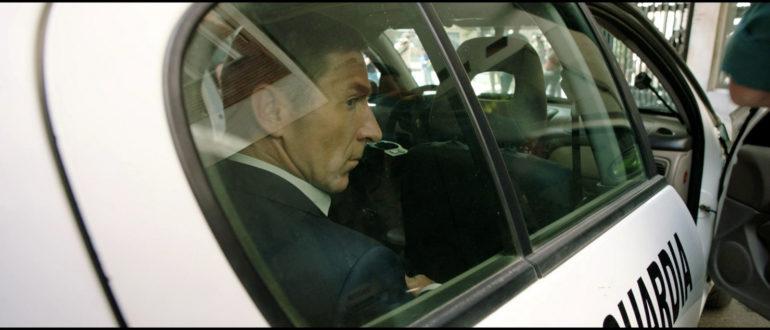Palm Springs Review: ‘The Realm’
By Dennis Harvey
LOS ANGELES (Variety.com) – The notion that government is one big con directing money into already well-lined pockets is confirmed and then some in “The Realm.” Rodrigo Sorogoyen’s “Michael Clayton”-like thriller has struck a chord in Spain, where the persistence of corruption in the post-Franco era is a popular topic bordering on obsession. But are examples of corruption just a matter of a few bad apples or the tip of a vast conspiratorial iceberg?
Sorogoyen (“Stockholm”) and co-writer Isabel Pena (also his collaborator on “May God Save Us”) definitely favor the second scenario, and that bleak verdict has resonated in Spain — “” is dominating this year’s Goya race, with 13 nominations. It’s unlikely the film will resonate as well offshore, as some viewers may be confused by a narrative that assumes familiarity with Spanish political and economic systems; moreover, the movie is not the “ripped from headlines” true story it often feels like. Nonetheless, acclaim should carry it far among those craving intrigue, suspense and muckraking social commentary.
The reliably compelling Antonio de la Torre is ideally cast as Manuel Lopez-Vidal, a regional vice president whose loyalty to the (unnamed) political party line has steadily boosted him up the ladder. It’s also provided a posh lifestyle for himself, devoted spouse Ines (Monica Lopez) and their teen daughter Nati (Maria de Nati). Driven, motor-mouthed and smug, Manuel is the perfect enabler for policies we’re given to understand include a great deal of money-laundering, real estate-shuffling and other white-collar criminal activity.
His nimble complicity is on the verge of getting him promoted to a national-level position when suddenly fate introduces a U-turn. A leaked tape threatens to at least partially expose this netherworld of high-end dirty dealing to the public. While at first Manuel simply retrenches and keeps his mouth shut like everyone else, it soon becomes obvious that his colleagues have selected him as the scapegoat for the whole mess; he’ll go down in flames so that they can proclaim a shocked, false innocence that lets the system continue as usual.
But Manuel isn’t the type to “take one for the team,” not to this degree. Indeed, it’s somewhat of a problem in “The Realm” that our protagonist is such a classic dirtbag in a designer suit. Why should we care that he suffers when he’s precisely the kind of person who oils the gears of systemic corruption? He deserves to suffer. Still, as the frantically managed scandal’s dimensions keep expanding — well beyond the borders of Spain itself — Manuel’s superiors reveal themselves to be even guiltier, not to mention more cold-blooded, than he.
With self-preservation seemingly a lost cause, Manuel turns to whistle-blowing vengeance, and increasingly acts like a rather unhinged action hero in a paranoid spy movie. Perhaps the most striking of the perilous situations he gets into is a tense set-piece where he invades a drug-and-sex-fueled party held by the daughter of a duplicitous colleague, scouring the place for evidence while claiming he’s operating on her father’s orders.
“The Realm” sports a large cast of expertly played characters whose relationship to one another (let alone to the overall corruption scheme) is often hard to keep straight. But the script’s gradually tightening noose of complications, and Sorogoyen’s sleek handling — which maintains a certain ironical detachment even as Manuel’s actions approach flop-sweat intensity — make the impact of the whole more important than clarity of its densely packed details. Though Manuel would’ve been happy to remain a useful cog in a dirty machine, we come to share this admittedly “arrogant bastard’s” bitter goals as he aims to undermine the corruption from within. Even the supposedly free press does not escape the taint of complicity at the confrontational end of this surprising, serpentine tale.
Glossy with an edge, the movie’s design elements riff on the somewhat cold, impersonal stylishness of the wealthy enclaves it’s primarily set within. This isn’t the Spain of rich cultural and artistic history but one whose stark, expensive corporate surfaces reflect only the culture of money. The restrained ominousness in Olivier Arson’s original score further ballasts the smooth thriller mechanics and the uniformly solid performances. Luis Zahera is particularly memorable as a politico whose meltdown under pressure makes Manuel look like a block of ice.

